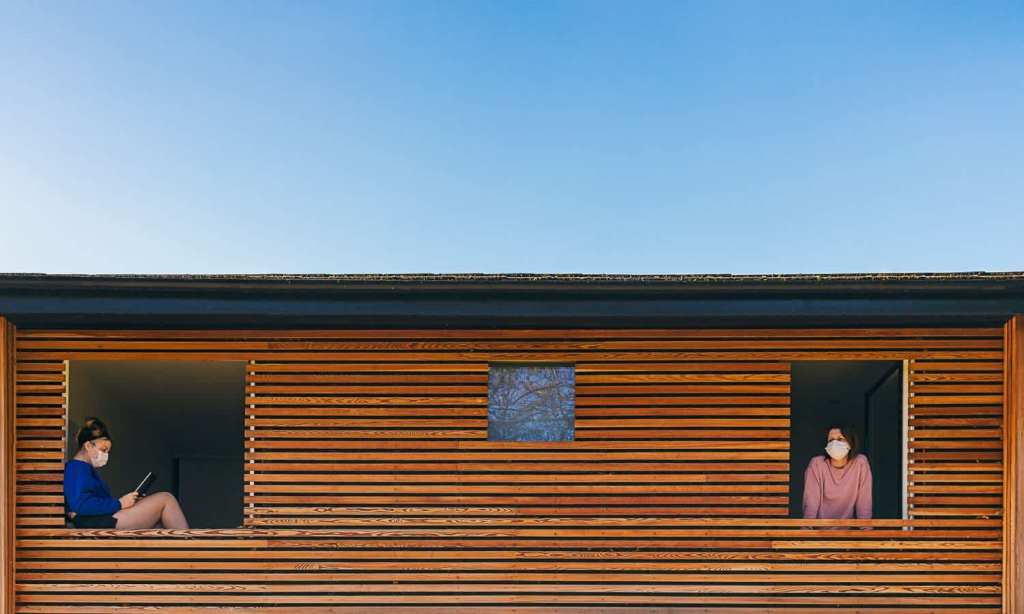As the world locked down due to COVID-19, a bunch of people were already locked in a house in Sydney’s North Head Sanctuary, albeit these people had voluntarily given up their normal lives to join Big Brother Australia.
The isolation felt around the world and for the Big Brother contestants is scarily similar, but according to psychologist Amelia Twiss, from Twiss Psychology Group, the reason behind the isolation makes a difference in how we handle this situation.
Big Brother house or not, long periods of isolation can greatly affect your mental health and wellbeing, says Twiss. “People know themselves inside their network of social relationships and require social engagement to feel safe and connected in life,” Twiss told TheLatch—.
“We actually need to see the faces and hear the voices of other people to help us regulate our emotional state. Without interaction with other people, our ability to self-regulate is reduced, and over time, this can lead to emotional distress or shut-down.”
When it comes to the Big Brother version of isolation and ours, the contestants chose their fate, while it was thrust upon us.
“The major difference between COVID-19 lockdown and isolation in the Big Brother house is the reason for the isolation,” Twiss said. “Worldwide, people are choosing to, or are mandated to, stay at home for the wellbeing of the whole population.
“By staying at home we are expressing care and commitment to the health of others and this results in a ‘we’re all in this together’ experience. People have a sense of being part of something bigger than themselves which gives them a purpose to stay at home. For most, being at home is likely to create a sense of safety and security and we usually choose the people we live with and enjoy being around them — obviously there are exceptions to this.”
The Big Brother housemates, on the other hand, are competing to stay in isolation, which could make for a slightly more stressful experience compared to iso.
“By contrast, people in the Big Brother house have chosen to stay there for the opportunity to win a substantial cash prize or the chance to develop a career beyond the series. You could say, they are ‘in it for themselves’,” said Twiss.
“In addition, Big Brother contestants are under constant surveillance, are set up to be in competition with each other, and can’t be sure to trust each other due to the nomination and eviction process.”
Potential prize money or not, being in lockdown can be a tough experience for everyone, introverts included. According to Twiss, introverts might have adapted to the experience more quickly than extroverts but it doesn’t mean they thrived in iso.
“It is a hard time for everyone,” said Twiss. “We all need human contact and the risk for introverts is that they might not reach out as readily as someone who is extroverted and this could compound the sense of isolation they experience.”
Even though many people have access to technology, Twiss says that introverts might be less likely to engage with FaceTime or Zoom calls.
“As a result, introverts living alone may be missing the ‘safe and social’ cues that come from face-to-face contact which can be addressed to a degree through video chat,” she said.
While slowly exiting iso is no doubt exciting, Twiss recommends letting your nearest and dearest know how you’re feeling about the situation. Months of time spent at home could make re-entering the world feel a little daunting.
“This is a time for reconnecting with others and nurturing our relationships face-to-face rather than from a distance,” she said. “It’s important for people to get clear on what you need to feel comfortable with respect to physical distancing and hygiene practices, and be ready to communicate these.
“We also need to listen to and respect how other people would like to approach physical closeness. Many have vulnerable loved ones at home who they are protecting, and respecting the wishes of others with regards to physical contact is important.
“Be aware that not everyone will be ready to hug you or attend social gatherings right away. Notice what comes up for you as you start to reconnect with your usual activities and share your feeling and reflections with others.”
If you or anyone you know is struggling and needs support, call Kids Helpline on 1800 55 1800 or Lifeline on 13 11 14, both of which provide trained counsellors you can talk with 24/7. You can also speak with someone confidentially at Headspace by calling 1800 650 890 or chat online here.







